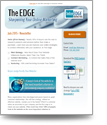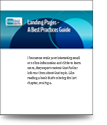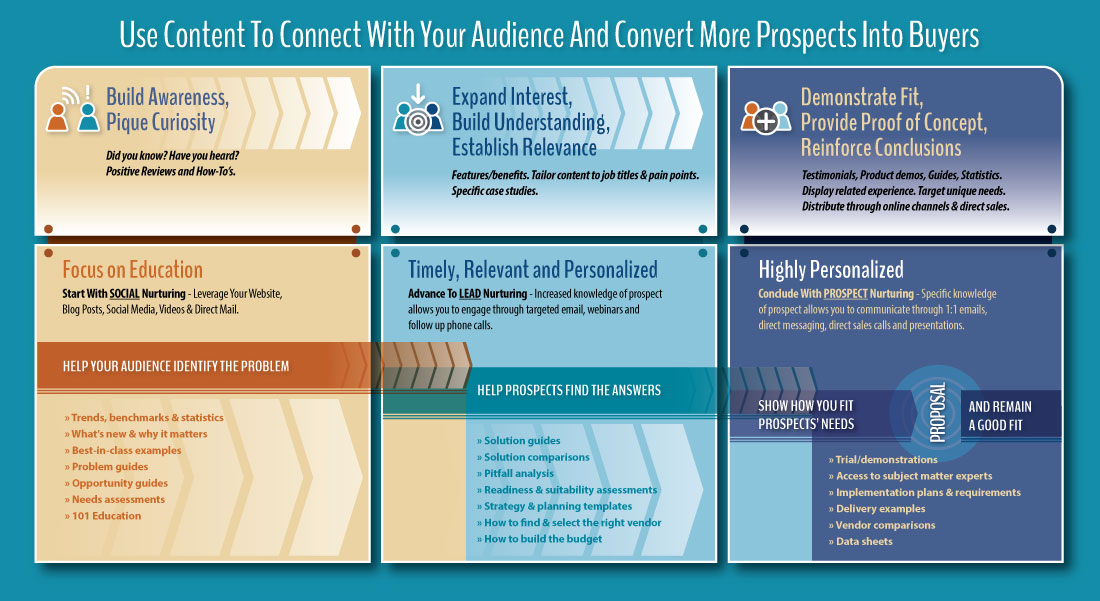
Why did Integrated Print & Graphics get calls from prospects asking about a product they didn't sell?
In todays online world it's surprising when a prospect decides to pick up the phone and call. But, it's down right confusing when you get calls for a product you don't produce.
IPG had recently launched a new website that showcased their unique services. But the calls had nothing to do with those capabilities. Yet, when IPG asked callers why they were inquiring about a service IPG didn't offer, they pointed to information they had viewed online.
Had IPG become a prisoner of their own acronym?
"What we've got here is a failure to communicate."
Why Keyword Research Impacts Your Business Offline and Online
Integrated Print & Graphics referred to their print services as integrated communications. Used by the sales team and throughout the company, the term didn't accurately represent their services. Instead, integrated communications was a phrase synonymous with wireless carriers. It didn't constitute print services to customers and prospects, online or offline. When their search results came up online, it was usually for wireless services that the company didn't offer. It attracted the wrong prospects.
It's just one of the reasons that keywords are so important.
Although you may think keywords are just for your website, they are much more. Keyword research impacts your direct selling efforts by:
- Better defining your target audience
- Guiding the messaging that connects your sales team to customers and prospects
- Understanding needs that result in more powerful presentations and proposals
- Steering sales directed communications to customers and prospects
In addition, there's the acronym factor. Employees may understand code names and abbreviations that naturally occur in all companies. But, they confuse your target audience. Understanding how they view your capabilities allow you to speak in their language, which increases understanding and the value they place on your products.
Keyword Research Drives User Experience And Improves Customer Experience
How your audience interacts with your website is a user experience. Customer experience is how your audience interfaces with your company. But both have a significant impact on determining further interactions.
Keyword research allows you maximize the user experience making it more likely prospects will engage with you. For example, your:
- Navigation Style
- Navigation Headings
- Images
- Design
- Contact Forms
But, most of us rely on personal interactions in addition to those that take place online. Keyword research helps you understand customer needs improving those direct interactions. Customer service and sales are more targeted and helpful. Messaging in brochures, branding and packaging are all enhanced.
Improved customer experience elevates the bottom line.
Keyword Research Drives Meta Data
Meta data, such as urls, page titles, descriptions, headings and alt tags, is the magnet that finds the needle in the haystack. By embedding keywords in both meta data and webpage content, it signals search engines to deliver your website, among the millions to chose from, in search results.
Using the wrong keyword hurts your cause. For example, let's say you have digital printing capabilities and use the phrase "digital printer." Keyword research will uncover that the term is used by printer manufacturers and office equipment companies and not printing companies with digital printing capabilities.
In addition, it indicates that consumers who need digital printing don't use the term "digital printer" in search. Instead, you'll find that "digital printing" is the term that better represents your capabilities.
Effective keyword research allows you to harmonize the best keywords in:
- Navigation headings
- Meta data
- Content
Effective Meta Data Sells Online And Offline
When the search engine results page delivers your website, it's time for the meta data to complete the job. Your descriptions are powerful sales weapons.
With only 160 characters, you have to work quickly. But, effective descriptions increase conversions, so it's worth the effort. Delivering a hook, detailing how your capabilities impact a popular pain point or including a keyword that reassures searchers are all effective meta description strategies. And, they encourage more visits to your site.
Once your audience lands on your webpage, the probability of a prospect contacting you goes up exponentially. A current or past customer will pick up the phone when they confirm, through your meta data and ultimate site visit, that you provide the service they need. Once on your website, prospects are more apt to look further and fill out a form that turns into a lead for your sales team.
Effective descriptions increase website visits.
Risk Of Missing Out (ROMO)
Keyword research is like building a foundation for a house. It's not as pretty or rewarding as the home that sits on top of it - unless you're a concrete professional. But, that strong foundation is necessary for a building and your website.
If the website isn't your only responsibility, it's natural to skip steps, especially with multiple projects pending or deadlines approaching. But foregoing keyword research puts you impacts your business. Unlike a building, a poor foundation won't cause your website to collapse but, it does put you at risk. The risk of not connecting with customers and prospects who need your capabilities.
Avoid ROMO - conduct keyword research! It benefits you offline with direct sales and connects you with your ideal customer converting more prospects into buyers.
Identify problem areas. Improve your SEO. Connect with more prospects.
Get a Free Website Assessment



 Insight Delivered Directly to You Interesting topics, great offers and free marketing tools.
Insight Delivered Directly to You Interesting topics, great offers and free marketing tools.

